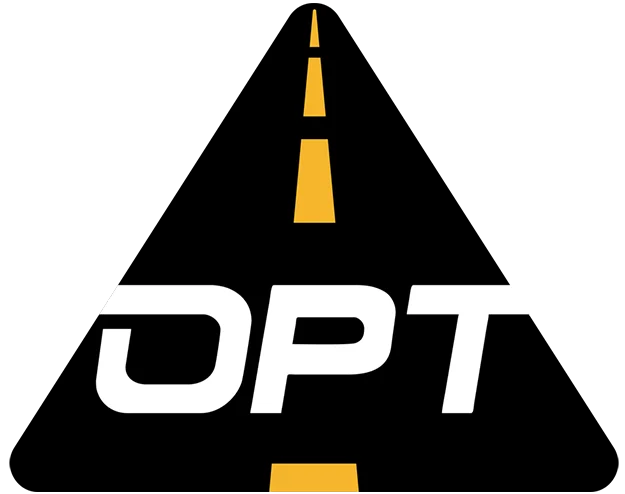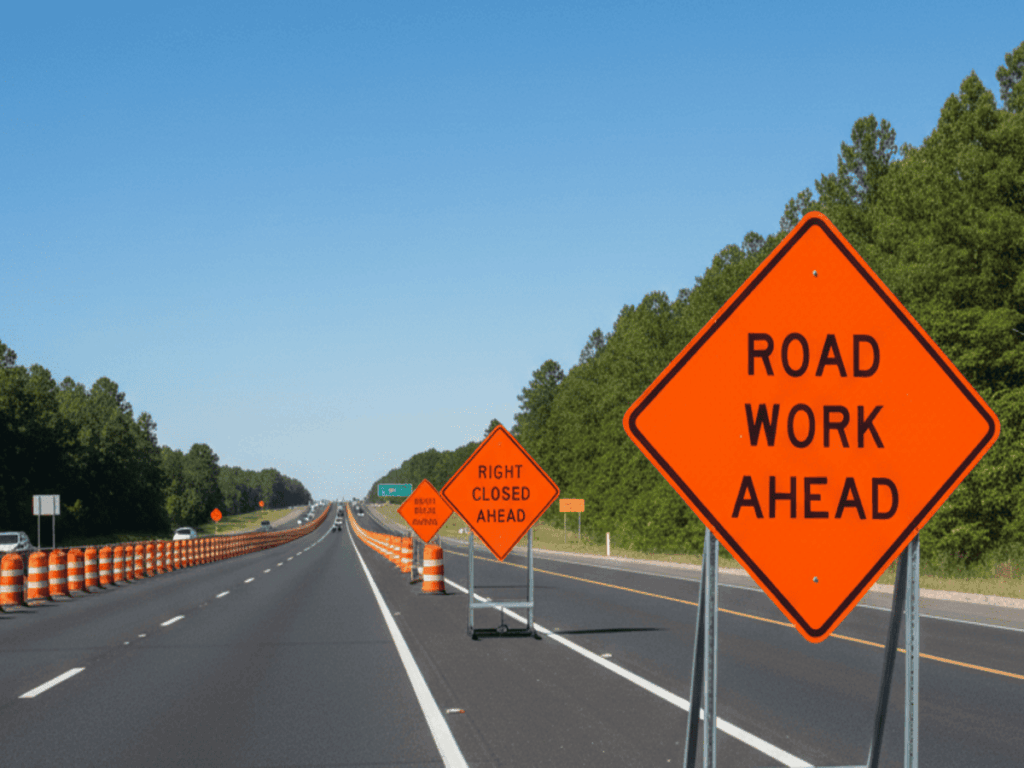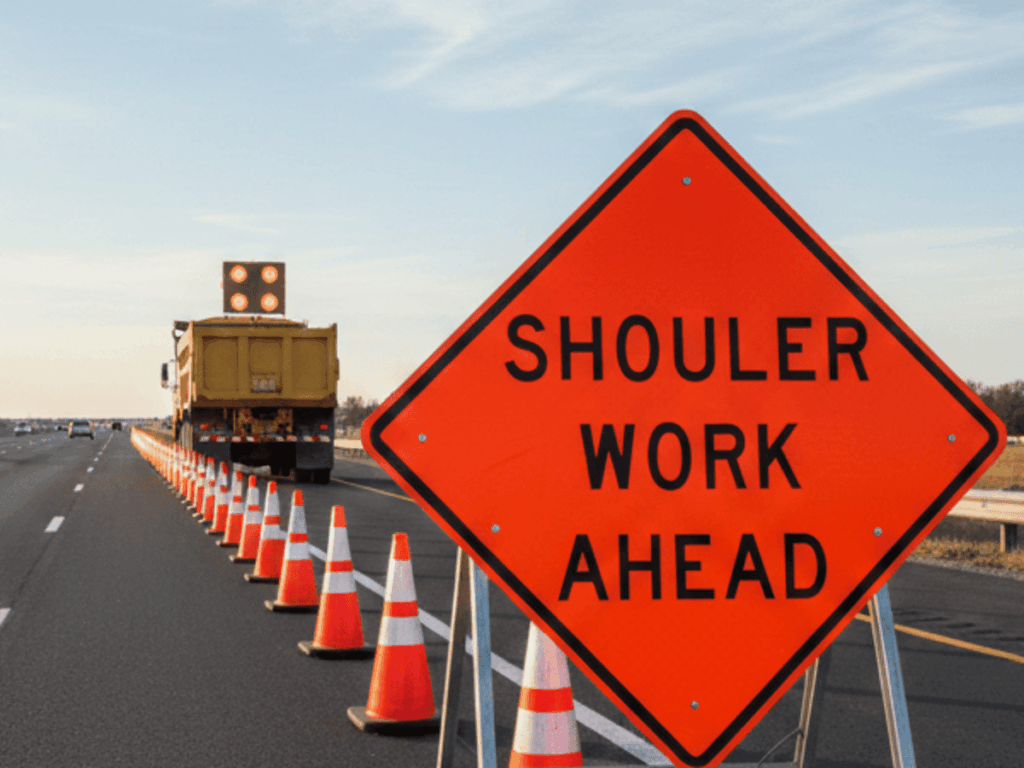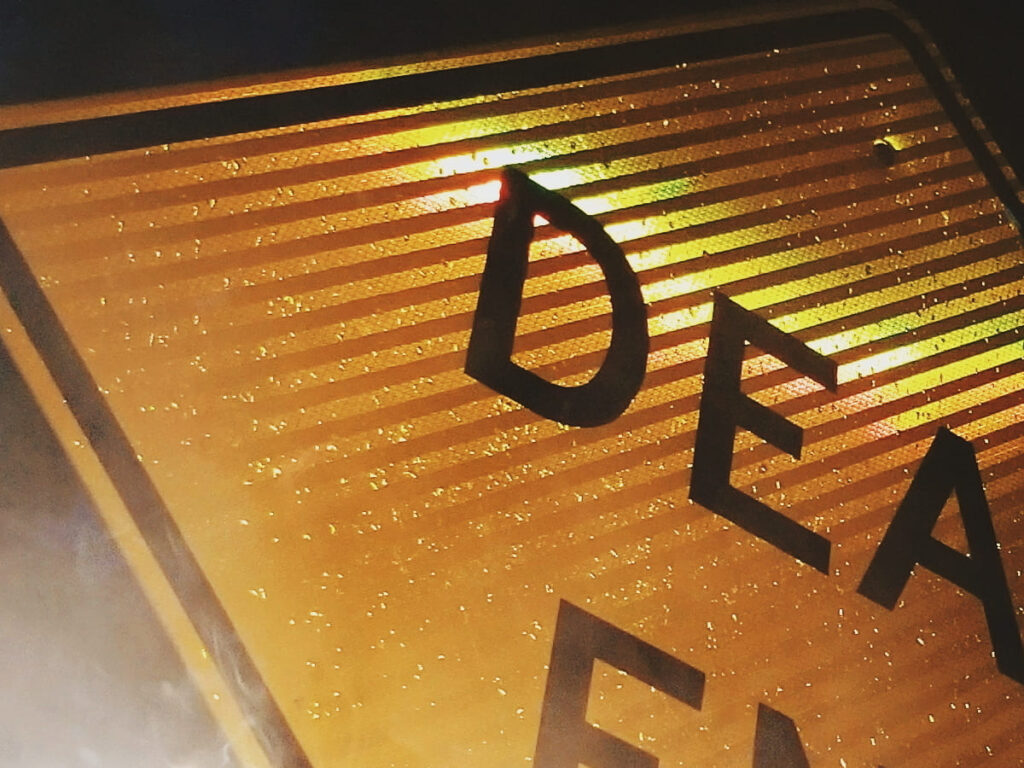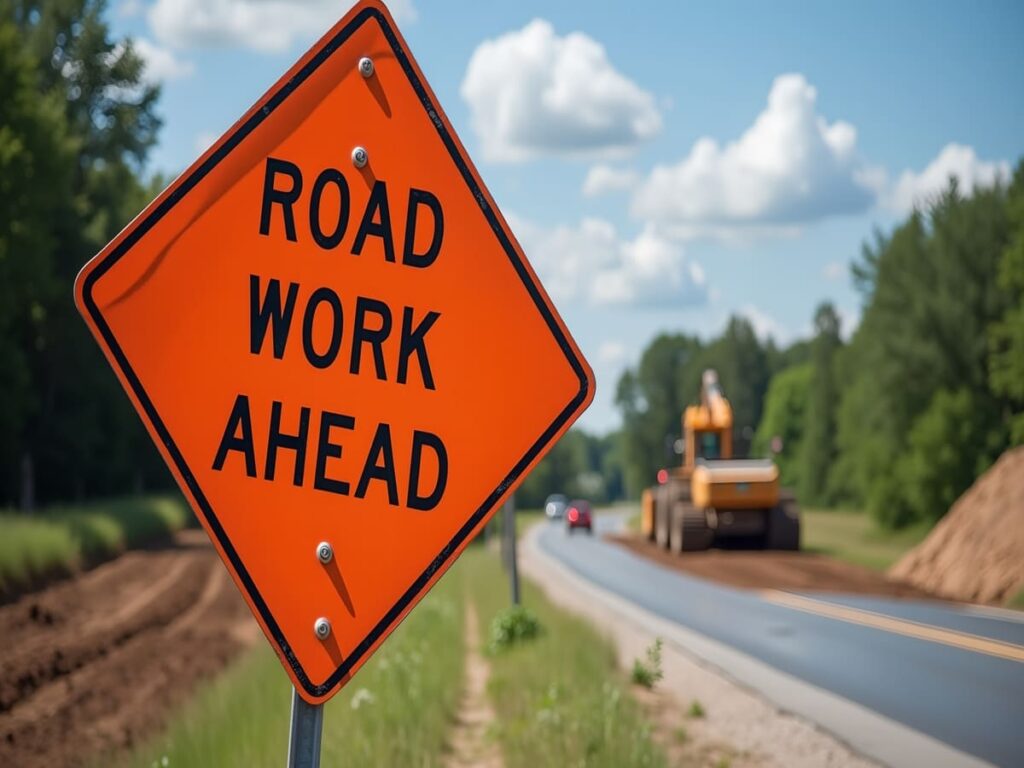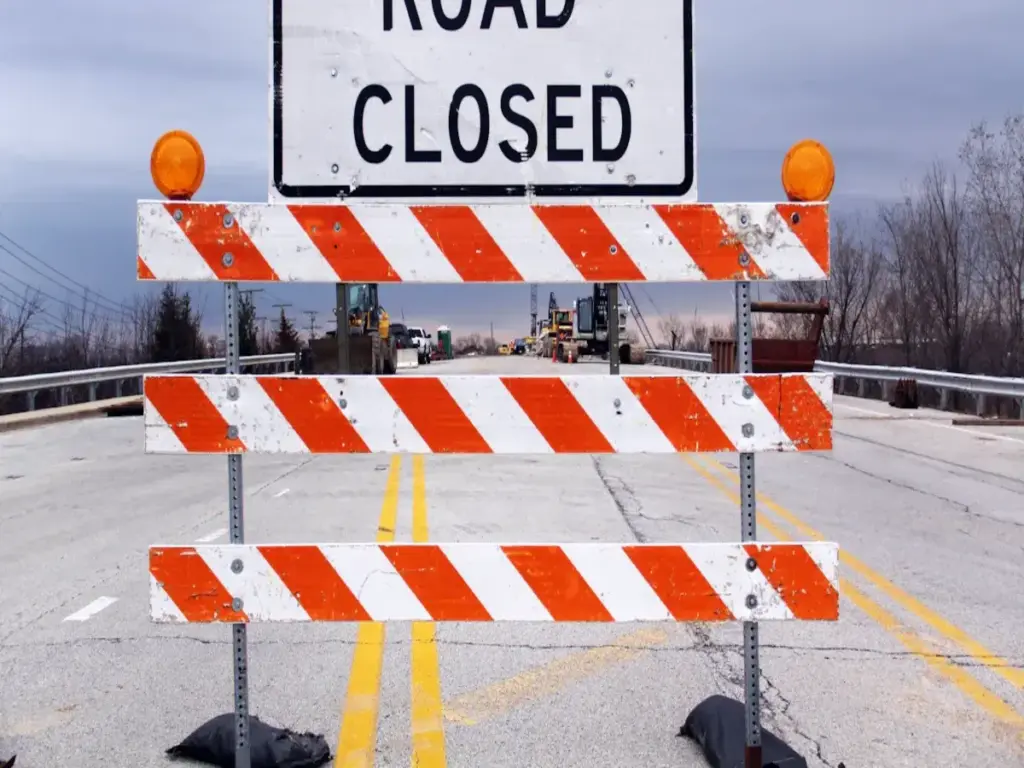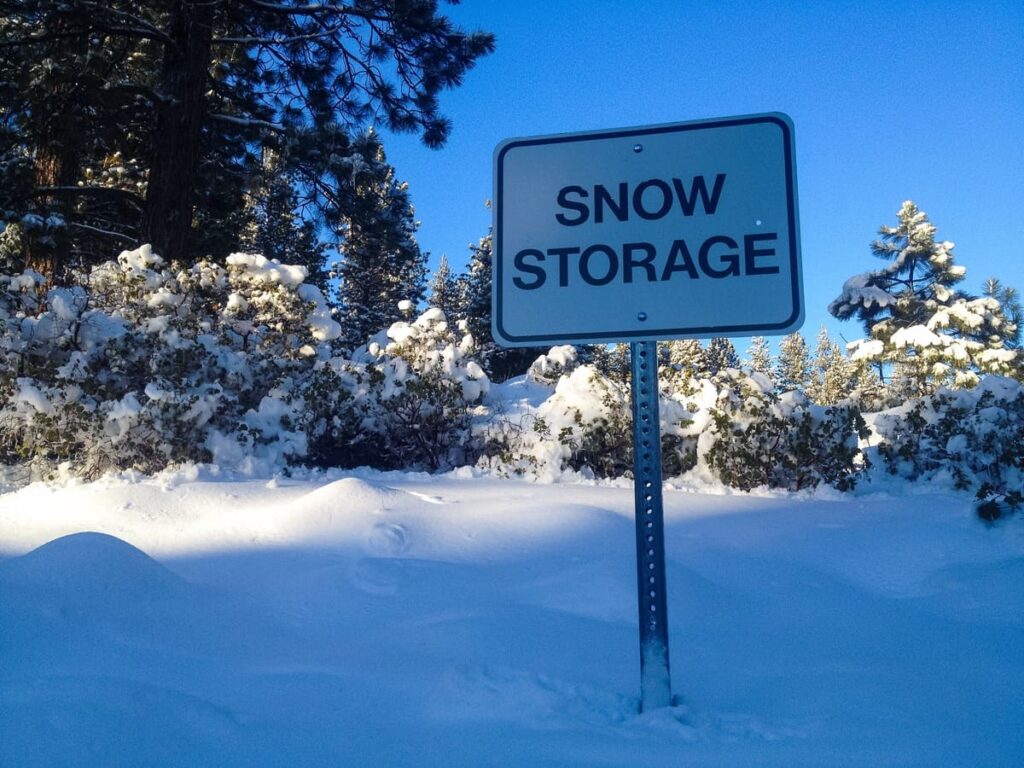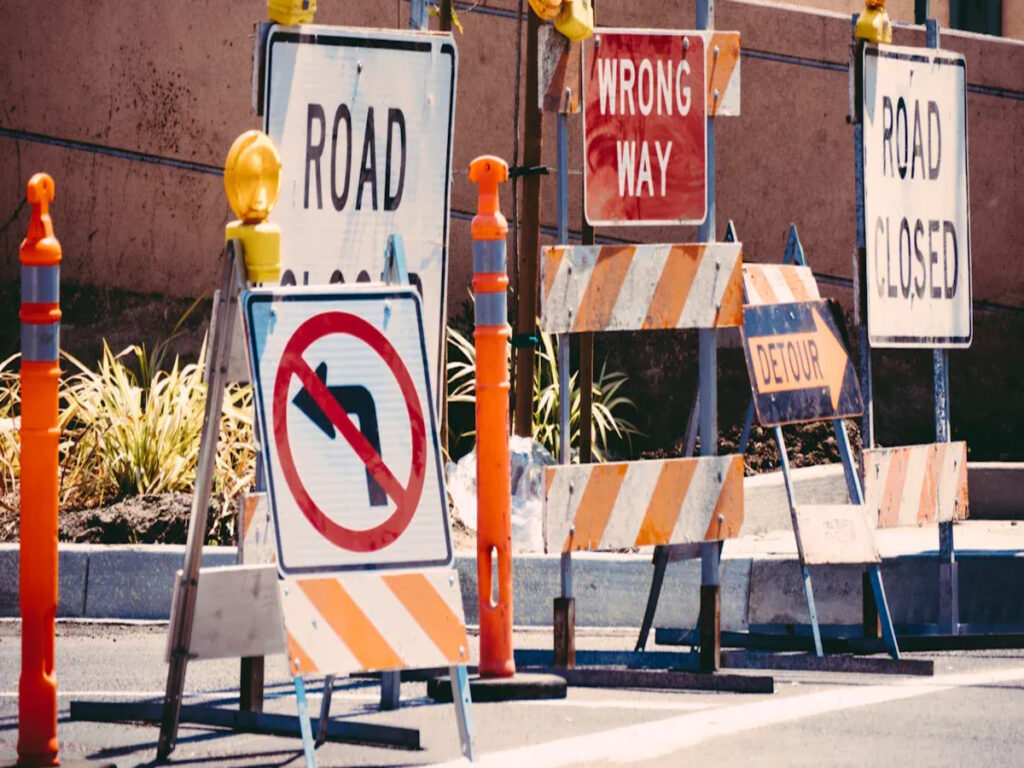
You want the best roadwork signs for Sydney jobs. You need to pick materials that are strong and not too costly. The signs must also follow the rules. Procurement managers and civil contractors in Sydney choose signs that meet strict standards like MUTCD and AS 4192. This keeps everyone safe and follows the law. When you pick signs, you want good materials. These materials should last in bad weather. They should also be good for the environment. Good sign supplier relationships and early planning help a lot. This way, you get roadwork signs that are reliable and not too expensive. The signs will also be better for the environment.
At OPTRAFFIC, we provide durable, high-quality traffic signs for sale that meet all necessary safety standards and regulations. Our traffic safety signs are built to withstand harsh weather and last longer, helping you keep projects on budget and sustainable. Let us help you choose the best materials for your roadwork signs.
Key Takeaways
- Pick metal signs like aluminium or steel for long jobs. These signs last a long time. They can handle bad weather. They work well on busy roads.
- Use corflute signs for short jobs or quiet roads. These signs are light and easy to put up. They do not cost much money.
- Choose boxed edge signs for busy or risky places. These signs are very strong and tough. They help stop damage.
- Always make sure your signs follow Sydney’s safety rules. This keeps your worksite safe and legal.
- Think about using eco-friendly materials and recycling. This helps cut down waste. It is good for the environment.
Roadwork Signs: Material Options
Sydney roadwork projects need different sign materials to keep everyone safe and follow the rules. You will find metal, corflute, and boxed edge signs in many outdoor places. Each material is good for certain jobs and weather.
Metal
Metal signs, such as those made from aluminum or Colorbond steel, are ideal for extended roadwork projects in Sydney. They offer durability, withstand harsh weather conditions, and endure heavy traffic effectively. These materials do not rust or break easily, so they are great for outside. Metal signs follow NSW and MUTCD rules, so they pass checks. You use metal roadwork signs for site rules, safety tips, and warnings. Diamond-grade reflective tape on metal signs helps drivers see dangers from far away, even at night.
Corflute
Corflute signs are light and cheap, so they are good for short roadwork jobs. You can move and put up corflute signs quickly, which saves time. Corflute works best in places with nice weather and not much traffic. You use corflute for event signs, short warnings, and site notes. This material is good when you need signs that are easy to set up and take down. Corflute signs also follow NSW rules for short-term signs, so you stay legal.
Boxed Edge
Boxed edge signs are very strong for busy and risky areas. You pick boxed edge signs when you need them to last in tough places. These signs have strong edges, often made with aluminium or steel, to stop damage from cars and machines. Boxed edge signs last longer in hard spots and keep your signs safe and easy to see. You use boxed edge signs for danger, electric risks, and emergency rules. These signs also follow NSW and MUTCD rules, so you know you are doing the right thing.
Tip: When you pick sign materials, always make sure your choice fits the job and local rules. This stops mistakes and keeps your work area safe.
Signage Material Comparison
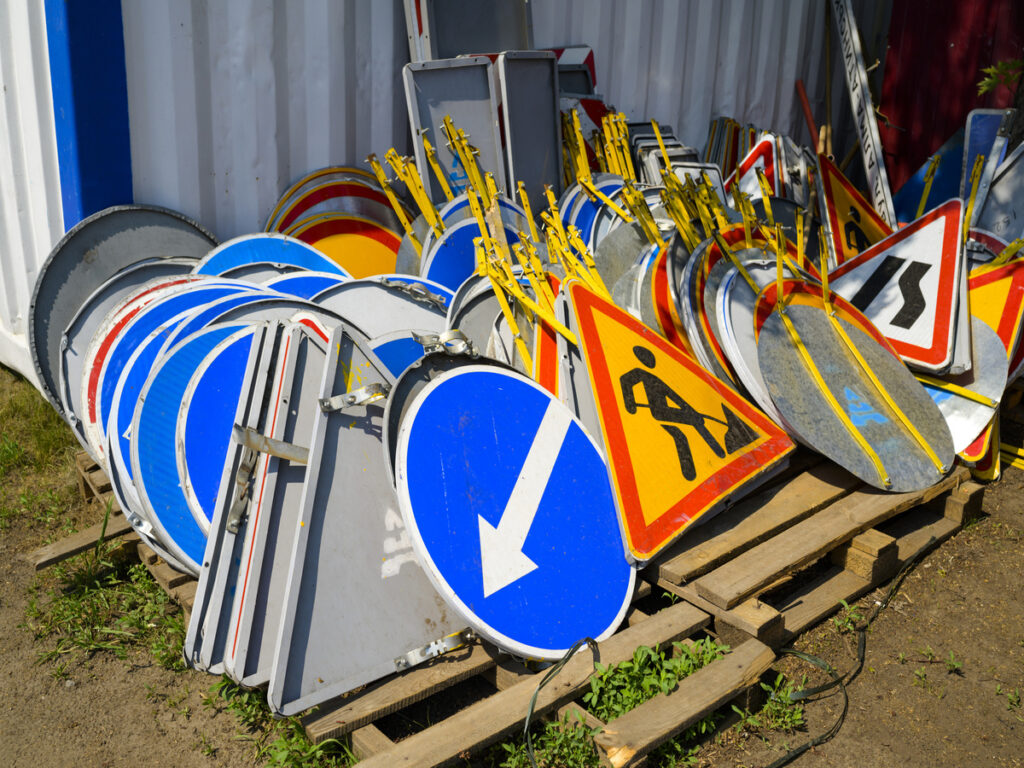
Choosing the right materials for your roadwork signage in Sydney means looking at how each option performs in real-world conditions. You want traffic safety signs that last, meet the rules, and stay visible. The table below gives you a quick look at how metal, corflute, and boxed edge signs compare across key features.
| Feature | Metal (Aluminium/Steel) | Corflute (Plastic) | Boxed Edge (Reinforced Metal) |
|---|---|---|---|
| Durability | High. Aluminium resists rust and rain. Steel handles impacts and tough weather. | Medium. Good for short-term use. Handles sun and rain but not for long periods. | Very High. Reinforced edges protect against damage in busy or risky areas. |
| Compliance | Meets all NSW and MUTCD standards. Aluminium and steel pass size, reflectivity, and mounting rules. | Meets short-term standards. Use for temporary signs only. | Fully compliant for long-term and high-risk use. |
| Visibility | Excellent. Reflective sheeting makes signs easy to see day and night. | Good. Reflective options available, but less durable over time. | Excellent. Reflective surfaces and strong frames keep signs clear. |
| Installation | Moderate. Heavier than plastic, needs secure posts. | Easy. Lightweight and quick to set up or move. | Moderate. Heavier due to reinforced frame, but stable once installed. |
| Cost | Higher upfront. Lasts longer, so better value for long-term projects. | Low. Best for short jobs or events. | Highest. Extra strength and lifespan make it cost-effective for high-impact zones. |
Durability
You need signs that stand up to Sydney’s weather. Aluminium signs do not rust and stay strong in rain or humidity. Steel signs, like Colorbond, resist fading and damage from impacts. These materials work well for outdoor use and last for years. Corflute signs use plastic, which handles sun and rain for short periods. Boxed edge signs use reinforced aluminium or steel, so they last even longer in busy or rough areas.
Tip: For long-term outdoor projects, choose aluminium or boxed edge signs. For short-term jobs, corflute is enough.
Compliance
You must follow strict rules for roadwork signage in Sydney. These rules cover size, durability, mounting, and reflectivity.
- Aluminium signs meet all national and local standards, including AS 1743 and AS 1742.
- Steel signs also pass strength and safety checks, making them good for high-traffic areas.
- Corflute signs meet the rules for temporary use. Use them only for short-term signage.
- Boxed edge signs offer extra strength, so they stay compliant in tough spots.
Proper mounting and regular checks keep your signs safe and legal.
Visibility
Drivers need to see your signs clearly, day or night. Aluminium and steel signs use reflective sheeting that meets Australian standards. This sheeting can last up to 12 years. Corflute signs can also use reflective film, but the surface may wear out faster. Boxed edge signs keep their shape and reflectivity, even in busy or high-impact areas.
Installation
You want signs that are easy to put up and take down. Corflute signs are light and simple to install. You can move them quickly if your work zone changes. Aluminium and steel signs are heavier. You need strong posts and secure fixings to keep them in place. Boxed edge signs are the heaviest, but their strong frame keeps them stable in windy or busy areas.
Cost
Think about your budget and how long you need the signs.
- Aluminium and steel signs cost more at first, but they last much longer.
- Corflute signs are cheap and best for short-term use.
- Boxed edge signs cost the most, but you get extra strength and a longer life.
Choose the material that matches your project’s needs and saves money over time.
Choosing Signage for Sydney Projects
High-Traffic Areas
Sydney has many busy roads. Signs here must be easy to see and last long. Aluminium and Colorbond steel are the best choices. These materials do not rust or break in bad weather. They keep their colour and shape even with lots of cars. Reflective surfaces help drivers see signs at night or when it rains. Clean and check the signs often to keep them clear and legal. Good reflective materials help your signs follow safety rules and lower accident risks.
| Material | Durability Features | Suitability for High-Traffic Roads |
|---|---|---|
| Aluminium | Rust-proof, waterproof, long-lasting | Excellent for Sydney street and road signage |
| Colorbond Steel | Withstands rain, hail, heat, retains colour | Highly durable for harsh climates |
Temporary Works
Sometimes you need signs for short jobs or events. Corflute signs and PVC banners work well for these tasks. They are light and simple to put up. You can move them fast if your work area changes. These materials are easy to see and meet short-term rules. Lenticular portable VMS and lensless LED VMS give clear messages and are quick to set up. Solar-powered models save money and help the planet. Using temporary signs saves time and keeps your site safe.
- Lenticular portable VMS: Easy to see, move, and install.
- Lensless LED VMS: Saves money, uses little power, sets up fast.
- Flexible PVC banners: Last outdoors, simple to mount, stop mould.
High-Impact Zones
Busy sites and crossroads need tough signs. Hi-impact poly signs are very strong. Their hard surface protects against hits from cars or machines. Boxed edge signs are also good in these places. They have strong frames that stop bending or breaking. These signs stay clear and safe in risky spots. Picking these materials helps you follow Sydney’s safety rules and avoid buying new signs often.
| Material | Impact Resistance | Suitability for High-Risk Zones |
|---|---|---|
| Hi-impact poly | Excellent | Best for critical impact durability |
| Boxed edge | Very high | Ideal for busy construction and roadwork sites |
Weather Conditions
Sydney’s weather can change fast. Heavy rain, strong wind, and heat can harm signs. You need signs made from aluminium, steel, or polycarbonate. These materials do not rust, bend, or crack easily. Special coatings protect signs from sun and water. Check and fix your signs often to keep them working. Alloys and coatings help signs last longer. Your work area stays safe and follows the rules, even in bad weather.
Tip: Always look at local rules before picking sign materials. Signs must be easy to see, read, and placed right to follow Sydney’s safety laws.
Eco-Friendly Building Materials in Signage
Sustainable Options
You can help the environment by picking eco-friendly building materials for your Sydney roadwork project. Metal signs, like aluminium and steel, are good for the planet. These metals can be recycled many times and still stay strong. This means your project does less harm to nature. Boxed edge signs often have sign frames made from recycled materials. This helps builders use less new stuff. Corflute signs are made from plastic, but some are made from recycled plastic. These choices help you make less rubbish and care for the earth.
If you pick eco-friendly building materials, it shows you care about the earth and people around you.
Recycling and Disposal
You should always think about what to do with your signs when the job is done. Metal signs are simple to recycle. You can take them to a recycling centre, and they will be made into new things. Boxed edge signs have strong frames that use recycled materials. They can also be recycled again. Corflute signs can be recycled at special places that handle plastics. Using eco-friendly building materials helps keep rubbish out of landfills and protects nature.
Here is a quick guide to recycling each material:
| Material | Recycled Materials Used | Recycling Method | Eco-Friendly Score |
|---|---|---|---|
| Metal | Yes | Scrap metal recycling | High |
| Boxed Edge | Yes | Metal recycling | High |
| Corflute | Sometimes | Plastic recycling | Medium |
You can help a lot by picking eco-friendly building materials and recycling your signs. This makes your project better for the earth and keeps Sydney cleaner.
Case Studies: Sydney Roadwork Signage
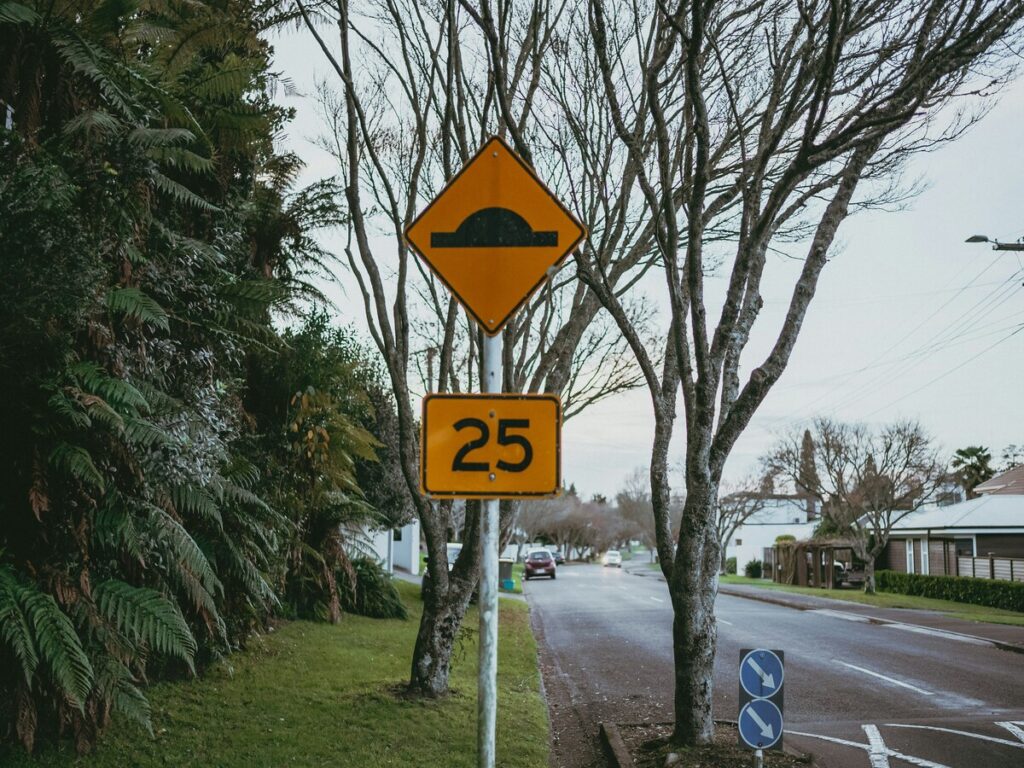
Metal Signs in Long-Term Projects
Metal signs are used on Sydney’s busy roads. They are made from aluminium or steel. These signs last through rain, wind, and sun. You pick metal signs for jobs that need strong signs. They follow all NSW and MUTCD rules. You save money because you do not replace them often. Metal signs keep their colour and shape with lots of traffic. They show safety messages and directions in busy places.
Metal signs help you feel calm. You know your signs will last and stay clear for drivers.
Corflute for Temporary Signage
Corflute signs are good for short jobs and events. They are light and easy to move. You can put them up fast with eyelets, tape, or screws. Corflute is best for temporary roadwork, building sites, or events. You can get them printed and delivered on the same day in Sydney. Printing many at once makes them cheap. They last up to one year, so they are great for short projects. You can recycle or use them again after your job ends.
| Feature/Benefit | Description |
|---|---|
| Material | Polypropylene, lightweight, waterproof, weather-resistant |
| Reusability | Reusable and recyclable, suitable for temporary use |
| Cost-effectiveness | Affordable, especially with bulk printing |
| Durability | Lasts up to 1 year, ideal for temporary roadwork signage |
| Installation | Easy mounting: eyelets, tape, screws |
| Printing & Delivery | Same-day service available in Sydney |
Corflute signs help you save time and money. You keep your site safe and follow the rules without spending too much.
Boxed Edge in High-Risk Areas
Boxed edge signs are used where there are many machines and vehicles. These signs have strong frames made from aluminium or steel. They do not bend or break easily. You pick boxed edge signs for risky places like building sites and busy crossings. They stay clear and safe, even if hit by equipment. You follow all safety rules and do not need to replace them often. Boxed edge signs protect workers and people nearby.
Boxed edge signs give you extra strength. Your signs keep working in tough places.
Selecting the Right Signage Material
Decision Checklist
You want to make the right choice for your Sydney roadwork project. Use this checklist to help you pick the best signage material for your needs:
- Project Duration
- Short-term (days to months): Corflute signs work well.
- Long-term (months to years): Choose metal or boxed edge signs.
- Traffic Volume
- Low traffic: Corflute signs are suitable.
- High traffic: Metal or boxed edge signs provide better durability.
- Site Risk Level
- Low risk: Corflute or standard metal signs are enough.
- High risk (heavy machinery, busy roads): Boxed edge signs offer extra strength.
- Weather Conditions
- Mild weather: Corflute signs can last.
- Harsh weather (rain, wind, sun): Metal or boxed edge signs resist damage.
- Compliance Needs
- Temporary compliance: Corflute signs meet short-term rules.
- Full compliance for long-term: Metal and boxed edge signs meet all standards.
- Budget
- Limited budget: Corflute signs save money for short jobs.
- Investment for long-term: Metal and boxed edge signs give better value over time.
- Environmental Goals
- Want to recycle: Metal and boxed edge signs are easy to recycle.
- Need eco-friendly options: Look for recycled materials in all sign types.
Tip: Tick off each item on this checklist before you order your signs. This helps you avoid costly mistakes and keeps your project on track.
Common Mistakes to Avoid
You can save time and money by steering clear of these common errors:
- Ignoring Local Rules
You must check NSW and MUTCD standards before you buy. Signs that do not meet these rules can cause fines or delays. - Choosing the Wrong Material for the Job
Do not use corflute signs for long-term or high-traffic projects. They work best for short-term needs. - Overlooking Weather and Site Conditions
Sydney weather can change fast. Pick materials that stand up to rain, wind, and sun. Metal and boxed edge signs last longer outdoors. - Forgetting About Installation
Heavy signs need strong posts and secure fixings. Plan for the right tools and staff. - Not Planning for Recycling or Disposal
Think about what happens after the project. Choose signs that you can recycle or reuse. - Focusing Only on Upfront Cost
Cheap signs may cost more in the long run if you need to replace them often. Invest in quality for long-term projects.
Note: You make better choices when you match the sign material to your project’s needs. Review your checklist and avoid these mistakes for a safer, more efficient roadwork site.
You can pick from different roadwork signs in Sydney. Metal signs last the longest. They are good for busy roads or bad weather. Corflute signs are best for short jobs with little traffic. Boxed edge signs are very strong for dangerous places. The table below helps you choose what you need:
| Factor | Best Materials | Why Choose Them |
|---|---|---|
| High Traffic | Stainless steel, UV-stabilised polycarbonate | Strong, easy to see, and hard to damage |
| Weather Resistance | Die-cast aluminium, UV-stabilised polycarbonate | Stand up to heat, rain, and sunlight |
| Budget | Polycarbonate, profile aluminium | Cost less at first, still good quality |
| Maintenance | Die-cast aluminium, polycarbonate | Need less fixing, simple to look after |
For advice that fits your job, talk to OPTRAFFIC. Use the checklist and table above to help plan your project. Go to OPTRAFFIC’s product pages for more information.
FAQ
What is the best material for long-term roadwork signs in Sydney?
You should choose metal signs, such as aluminium or steel, for long-term projects. These signs last for years, resist harsh weather, and meet all NSW and MUTCD standards.
Can you recycle roadwork signs after your project ends?
Yes, you can recycle metal and boxed edge signs at most recycling centres. Some corflute signs are also recyclable at special plastic facilities. Recycling helps you reduce waste and protect the environment.
How do you know if your signs meet Sydney’s safety rules?
You must check that your signs follow NSW and MUTCD standards. Look for signs with the right size, reflectivity, and mounting. Suppliers like OPTRAFFIC can help you choose compliant products.
Are corflute signs strong enough for busy roads?
Corflute signs work best for short-term or low-traffic areas. For busy roads, you should use metal or boxed edge signs. These options give you better strength and visibility.
